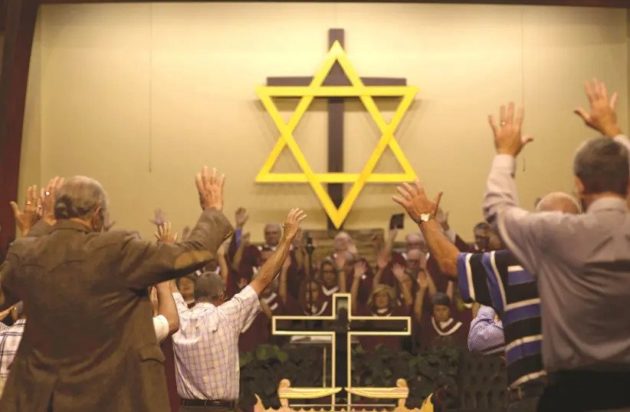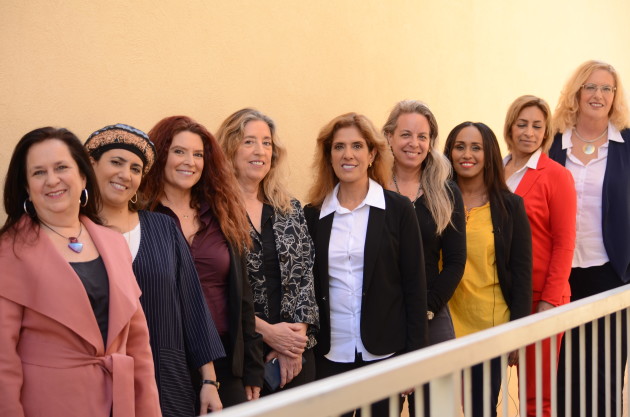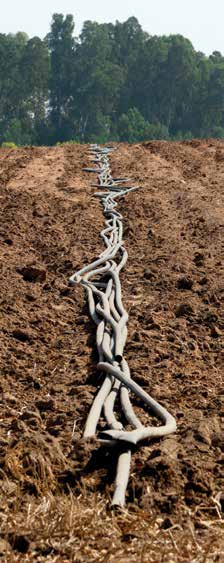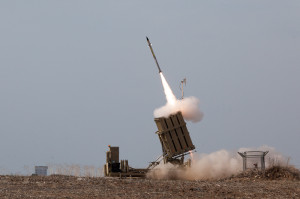Tag : palestine
December 9, 2020 by Amy Stone
“The Occupation is a Worse Virus,” and More from The Other Israel Film Festival

New York has more than enough Jewish gathering points, so what’s lost and what, if anything, is gained when the city’s 14th annual Other Israel Film Festival from the Marlene Meyerson JCC goes virtual?
The main advantage is the joy of being able to stream the festival, which ends Dec. 11, throughout the US. It’s not too late to binge the festival’s features, documentaries, shorts at https://www.otherisrael.org/ The festival Q&As with filmmakers are numerous and streamed post-event. Select breakout sessions with other viewers are a virtual substitute for those film discussions on line outside the ladies room. (Remember those days?)
And there’s the intrusive intimacy of Zoom – is that Carole Zabar partially hidden by pillows during a Q&A question? Long time filmmaker Lilly Rivlin’s brown cardigan is hanging from the knob of a partially opened closet door behind her. A bedroom is at least a break from cable commentators’ living room bookshelves.
Carole Zabar’s founding vision was a film festival showing the “Other Israel” – minorities, women, Palestinians not part of the Zionist dream or Israel propaganda.
This year’s selection of films feels more freewheeling. There’s the shock of the Other America in “ ‘Til Kingdom Come,” a documentary showing the unholy alliance between Zionist Jews and Evangelicals raising millions of dollars for Israel. The Kentucky Bible belt poverty is so unbelievable that Yael Eckstein, daughter of Yechiel Eckstein, founder of Holyland Fellowship of Christians and Jews, wonders if people actually live in the falling down houses.
Another departure for the OIFF, “Kings of Capital Hill” documents the power of AIPAC (American Israel Public Affairs Committee), the Israel lobby. Women made both these films, and what an achievement that it’s no big deal.
I’d like to say “My Dearest Enemy,” a woman made and woman financed feature about a Jewish and a Palestinian girl reunited after 25 years, is a must see. Alas, the film, directed, produced and written by Tzipi Trope and financed in part by Itzili Charney (founder of the Leon Charney Resolution Center), is not as good as the two women’s Q&A. Their passionate session is moderated by JCC film center director Isaac Zablocki from the empty bar of Gazala’s, the Upper West Side Druze restaurant kept going by festival participant Gazala Halabi. Watch the streaming Q&A for the chemistry between the two women and Trope’s just-do-it determination. “Making a documentary, I just go to my car, shoot film myself, and get a shlepper to edit for bubkas.” She says, “We’re in a virus. The Occupation is an even worse virus. It’ll kill a lot more people.” Her message: “We need to develop a vision for the future. We have to find the Martin Bubers of our vision.”
So who will be our Martin Buber?
I’m not nominating the mayor of Ramallah, but “Mayor” is certainly my pick so far of this year’s OIFF. American director David Osit’s prize-winning film of Musa Hadid, the Christian mayor in the historically Christian Ramallah, makes you want to end the Occupation now. Hadid’s up against the impossible – running a city without a country. He does it in a suit, with dignity and stays on message: “This is our city, our land.” He controls the Christmas celebration but not the police.
Israeli soldiers arrive for a surprise night attack of tear gas in front of the classy, glassy city hall by the Café de la Paix then pose for selfies in front of the plaza’s Christmas trees. It’s absurd; it’s wrenching; it’s immoral. The mayor wipes tear gas from the eyes of an injured journalist then pulls Osit out the next morning to film the new doors he’s gotten installed at a local school. One sign of progress –the women students from Birzeit University are told by the mayor that involvement in municipal government is the most worthwhile thing to do. Watch the streaming Q&A with the director and go to Film Forum to screen “Mayor” https://filmforum.org
And we can reach out from our Covid cocoon to support repairing the world NOW. The OIFF site includes the NIF (New Israel Fund) action guide for each film and the festival’s sponsors are numerous. To support life as we knew it pre-Covid, renting “Mayor” from Film Forum helps keep a beloved temple of movies alive. Ordering a meal from Gazala’s helps keep one fine woman-run restaurant in business.
- 2 Comments
October 23, 2020 by admin
Informed Engagement •
Encounter, a nonprofit educational organization, seeks to grow the Jewish community’s capacity to contribute to a durable resolution to the Israeli-Palestinian conflict in which all parties live with respect, recognition, and rights. It invites Jewish leaders to expand their view of this conflict and to be a positive force for communal change. You can access a library of articles, videos, podcasts and other media by staff and past participants that encourage a deeper understanding of the conflict from a range of perspectives.
- No Comments
July 27, 2020 by admin
A Mirage of Hope for Israelis and Palestinians
NAOMI ZEVELOFF covers religion, politics, and conflict, and is the former Middle East correspondent of the Forward.
In March, as coronavirus began to spread through Israel and the Palestinian Territories, I went to Jerusalem’s Old City to cover a story for Public Radio International’s The World about how people of faith were coping with restrictions on holy sites. On a timeworn stone path, I met Fathi Jabari, a Palestinian shopkeeper. He told me that he was struck by the fact that the virus makes no distinctions between people—Muslims, Christians, or Jews. “This coronavirus makes the world as a small village.”
It was an oddly hopeful message, in what was an oddly hopeful time. Among Israelis and Palestinians, I sensed a quiet acknowledgment that—at least when it comes to health—their fate is tied together. Israeli doctors trained with Palestinian ones, and some leaders even talked about cooperation.
As Israel has lifted its coronavirus lockdown, that talk has sadly diminished. Israel is pushing to annex large parts of the West Bank, where Palestinians want a state. Violence is percolating again. Recently, the Israeli army killed a Palestinian man who tried to run over Israeli soldiers in his car. The next day, Israeli police shot an unarmed autistic Palestinian man—an echo of the George Floyd killing—not far from Jabari’s store. Jabari had been right: the coronavirus turned the world into a small village. But it wasn’t enough to keep the village from fraying apart.
- No Comments
February 6, 2020 by Elana Sztokman
Why We Started a New Women’s Political Party in Israel

Photo Credit: Efrat Shpruker
Every time I turn on my computer, I remember why I decided to form a women’s political party. Not alone, obviously, but with a diverse and talented group of women. Nevertheless, I am constantly reminded about what brought me here, every time the screen comes to life.
No matter how many ad-blockers I use, the ads are constant: Do I want a hot babe? Or, do I need Viagra? Or maybe I’m in the mood for a Russian bride?
- No Comments
November 14, 2019 by Chanel Dubofsky
The Controversial Centerpiece of the Other Israel Film Festival
By Chanel Dubofsky
In 2015, Israa Jaabis’s car exploded at a checkpoint. The 33 year old Palestinian suffered first and third degree burns over 60 percent of her body and was charged with attempted murder.
It wasn’t intentional, Jaabis’s sister told Lea Tsemel, the Jerusalem lawyer at the center of the documentary, “Advocate,” directed by Rachel Leah Jones and Philippe Bellaiche. The explosion was a technical glitch, not a terrorist attack. Also, she told Tsemel, there was the fact that her sister had attempted suicide multiple times in the past.
- 1 Comment
April 2, 2019 by admin
A School for Peace

Photo: Avram Hay
The summer of 2018 saw a breakthrough for female recruits joining the male-dominated ranks of the combat units in the Israel Defense Forces. Some 1000 young women volunteered for combat duty, 150 more female recruits than in 2017, and up from 547 in 2012. Four (not new recruits) became the first female tank commanders, and the Israeli Air Force announced the appointment of the first female commander of a flight squadron.
Leaders from women’s organizations, and many politicians, hailed these events of breaking gender boundaries as symbols of feminist achievement and gender equality. But some viewed it differently.
Dr. Nava Sonnenschein, a veteran peacemaker and teacher of conflict resolution who has focused on Israeli-Palestinian dialogue for decades, declared that this upsurge is not the equality for which Israeli women should be striving. “Women should not barrel their way in to gain equal access to combat units,” said Sonnenschein, in an interview in Hebrew with Lilith. “Instead, they should fight to change the pervasive militarism in Israeli society.”
That’s a cause Sonnenschein has been engaged in for some 45 years, since she herself served in the IDF as a teacher at the Ein Karem Agricultural School in 1973—notably, not a combat position. In the Yom Kippur War that year, Sonnenschein lost several classmates and friends, and her impulse to pursue peace actively was sparked after she attended a memorial ceremony at her high school in Haifa. “Among the many people I knew who had been killed were my first love, Nimrod Gazit, and Muly, my cherished counselor from the HaMachanot HaOlim youth movement. I had also visited an injured friend at Soroka Hospital in Beer Sheva, and saw soldiers badly burned, with body parts hanging in the air.
“When the speakers at the memorial ceremony recited rote lines about valiant soldiers sacrificing their lives so that we could live, I felt a pit in my stomach. Was there really no alternative?”
Determined to find one, Sonnenschein co-led her first Israeli-Palestinian dialogue group utilizing a Jewish and an Arab facilitator. This was in 1974, while she was studying for a bachelor’s degree in education and art at University of Haifa, That group opened the door to a lifetime of peace work.
Alongside her peace activism, Sonnenschein has supported feminist principles. But an influx of women into combat units is not the gender segregation we should be challenging, she said.
“A border policewoman with an M16 slung over the shoulder frisking an elderly woman at a checkpoint is not the pinnacle of equality between the sexes,” asserted Sonnenschein. Nor is it the best use of that inductee’s talents. “Women should strive to promote a different sort of equality in our society: democracy, justice, and peace for all those who live in Israel and Palestine.”
Perhaps the historic exclusion of women from combat units has been a determining factor in bolstering their impulse to participate in Israeli-Palestinian dialogue. A byproduct of this exclusion has been that more women appear to have gravitated to peace work. And once engaged in dialogue, women seem to exhibit a greater ability to feel the other side. “From my vantage point, women seem to have more interactive tools to reach across the divide,” says Sonnenschein.
“IDF soldiers who spend three years policing civilians…in the West Bank begin to see the Palestinians not as people,” said Sonnenschein, speaking in Hebrew. “It’s a very difficult job. After these soldiers are released from the army, their motivation to participate in Israeli-Palestinian dialogue is greatly diminished.”
Sonnenschein knows a great deal about peacemaking. She is one of the founders of Neve Shalom-Wahat al-Salam (“Oasis of Peace”), an egalitarian community of Jewish and Palestinian-Arab citizens of Israel, located on a Latrun hilltop between Jerusalem and Tel Aviv. She is also a founder and director of the country’s first and only School for Peace, located in the same community. Since 1980, Sonnenschein has taught some 70,000 Israelis and Palestinians, aged 16 to 72, how to “dialogue-around-conflict,” using a signature method she helped develop at the School for Peace.
The method is rooted in social psychology. It puts the conflict right on the table and addresses the asymmetry of power, allowing for the identity of each side to stretch to include the other.
And stretch it does. For Israeli Rachel Yanay, one of the dialogue participants interviewed for a book by Sonnenschein now out in English, The Power of Dialogue Between Israelis and Palestinians, this stretching involved an embrace of her Mizrahi identity, and changed her relationship to Palestinians.
“First of all there’s my acceptance of the Arab-ness in me; I was more prepared to acknowledge it (after the course). And then there is a different connection to the other place: now it’s not off limits, not unacceptable. It is not the evil enemy who has no connection with me. It is part of who I am. Denying that they are part of who I am is incomprehensible now. What were they before? Some kind of group that you designate, they don’t belong and they don’t have to belong, and heaven help us if they do belong because they want to kill me; they want me not to be here.”
And Ayelet Roth says “The fear hasn’t disappeared, but it has diminished. I see myself as someone who has a partner. It’s possible to take action together to influence what happens in this country.”
For Maram Masarwi, facilitating the School for Peace course provides “tools for your whole life,” she says.
“As soon as you begin this process, it’s as though you’re beginning to see past your blindness. Then no one can tell you not to see, because you are already seeing. And you also find that you are dealing with yourself through the way you are dealing with the other.”
School for Peace staff members have taught their method in Cyprus, Northern Ireland, the UK, South Africa, Costa Rica and Kosovo. And in Sonnenschein’s decades of work in Israel and abroad, she told Lilith that she has found peace processes advance further when there is a higher proportion of women on the team. Strong empirical evidence suggests that including women in the various aspects of peace negotiations yields better results. For example, an International Peace Institute study of 182 signed peace agreements between 1989 and 2011 found that “when women are included in peace processes, there is a 35 percent increase in the probability that a peace agreement will last 15 years or more.” But everywhere women are in fact woefully underrepresented at the peace table. Between 1992 and 2011, only four percent of signatories to peace agreements were women, and less than ten percent of the negotiators at peace tables.
For Nada Matta, a Palestinian woman living in Israel who has been a facilitator of dialogue groups, the process of facilitation is “not easy,” as she says in the book. “I remember once regarding the subject of women, which is a very sensitive subject with the Jews. By the way I don’t much like to get into that, because the Jews love to latch onto it as a weak spot (of the Arab group). On the other hand, things must be addressed candidly. I remember on one occasion, something about the hijab, I think. Taking a position that is farther removed from Arab culture is not easy, and some issues are more sensitive than others.”
Sonnenschein has observed that in the Israeli-Palestinian case, both Israeli and Palestinian women are more effective than their male counterparts at bringing the central issues to the peacemaking table and engaging in constructive discussion.
“When our courses include Palestinians from the West Bank, we feature a three- or four-day simulation of negotiating a final-status agreement between Israel and Palestine. Women are consistently greater catalysts for this process. They’re better able to see the interests of the other side. Instead of just thinking of ‘what do I lose’, they consider the needs of each side on matters like Jerusalem, borders, sovereignty and historical justice with the refugees.”
Asked if patriarchal tendencies common in Israeli and Palestinian society creep into the dialogue, Sonnenschein nodded yes.
“There are times where I listen to men from both sides sharing their views vociferously, with notably less participation from the women. When it is my turn to give feedback, I turn to the women and say, it would be great to hear your voices!”
Sonnenschein has spent nearly four decades using her voice to promote dialogue. In 2010, she was awarded the U.S. State Department’s “Women of Courage” certificate for her “tireless work in advocating for social change and coexistence.” Last June, Sonnenschein and her colleague, Harb Amara, were awarded the Institute of International Education’s 2018 Victor J. Goldberg Prize for Peace for creating and leading the Change Agents Program for Jewish and Palestinian Professionals.
“Meeting the ‘other’ in the right environment and under the right conditions can change your life and your approach,” she says. The Power of Dialogue Between Israelis and Palestinians: Stories of Change from the School for Peace (Rutgers University Press) features interviews, mostly conducted around 2008, with 25 Israeli and Palestinian graduates of the program, 11 of them women, telling how they implement what they’ve learned “to promote peace in human rights, politics, environment, social work, urban planning, civil engineering, you name it.”
Ruth Ebenstein is a writer, a historian, public speaker and peace activist. Her forthcoming memoir is Bosom Buddies: How Breast Cancer Fostered an Unexpected Friendship Across the Israeli-Palestinian Divide.
- No Comments
December 26, 2018 by Noa Kattler Kupetz
A Filmmaker Listens to Germans, Jews and Palestinians
Like many born into the generation following the Holocaust, Ofra Bloch has always been fascinated with, and affected by, generational trauma–on both sides. Bloch set out to make a documentary focusing on descendants of former oppressors, focusing on the effects of the Holocaust on non-Jewish Germans. But what she ended up creating extends far past that initial subject. Instead, “Afterward” weaves together three emotional narratives: Germans after the Holocaust, Palestinians after the “Nakba” (the “catastrophe,” known by Israelis as the 1948 War of Independence) and Bloch’s personal story of growing up in Israel squeezed between inescapable shadows of WWII on one hand, and silence regarding Palestinians on the other.
As a child, Bloch dreamed of pursuing both psychology and filmmaking. Now, 30 years into her career as a psychoanalyst, “Afterward” is the meeting point of these dreams. “I have a lot of chutzpah, I take risks and I do things,” Bloch told Lilith. Throughout the six years it took to film and edit “Afterward,” Bloch continued to work full-time at her practice in New York. “I’m not a filmmaker, I’m a psychoanalyst, but I think both professions need the same skills,” she says. “You need to listen, which is like the camera looking at the subjects, and analyzing is like the editing process.”
- No Comments
July 9, 2014 by Talia Lavin
On Mothers, Sisters, Narrative and War
My twin sister, my little sister, and my best friend are all in Israel right now.
“Should I cancel my aliyah anniversary party Friday?” my twin just asked on Gchat. “So few people RSVPed…”
“I don’t know about the protocol for parties in the middle of a rocket war,” I answered.

Israel’s Iron Dome defense system (Wikimedia Commons)
“Don’t be melodramatic,” she said.
I have tried not to be. My younger sister, who is twenty; my twin sister and her husband, a former IDF officer and current reservist; my older sister’s husband, another former officer and current reservist; and my best friend are all in Israel, for vastly differing reasons, and there are rockets flying everywhere at cross-purposes, but I am trying not to be melodramatic.
- 2 Comments
 Please wait...
Please wait...